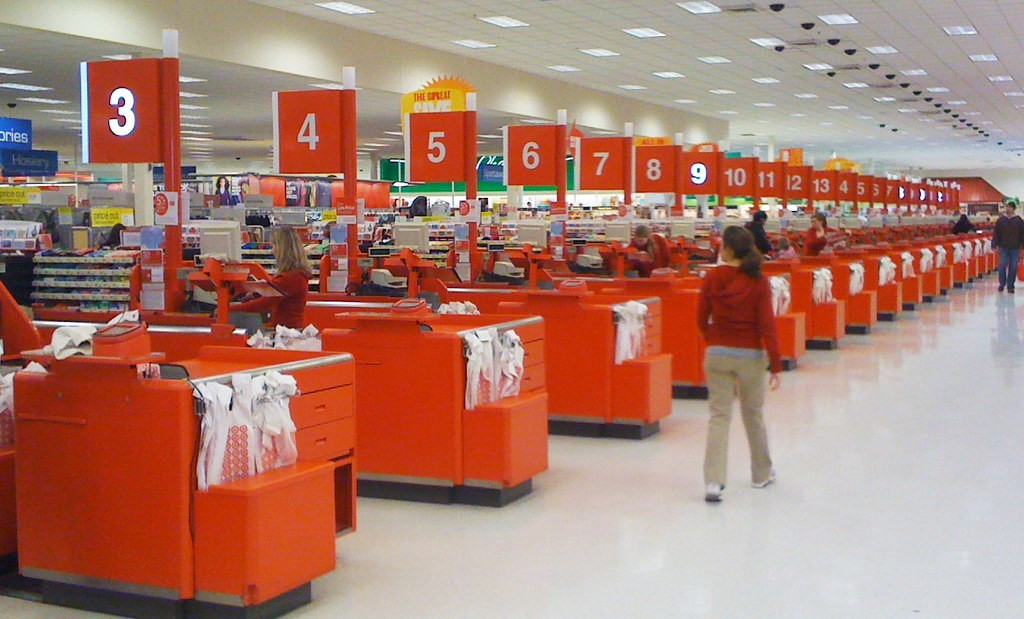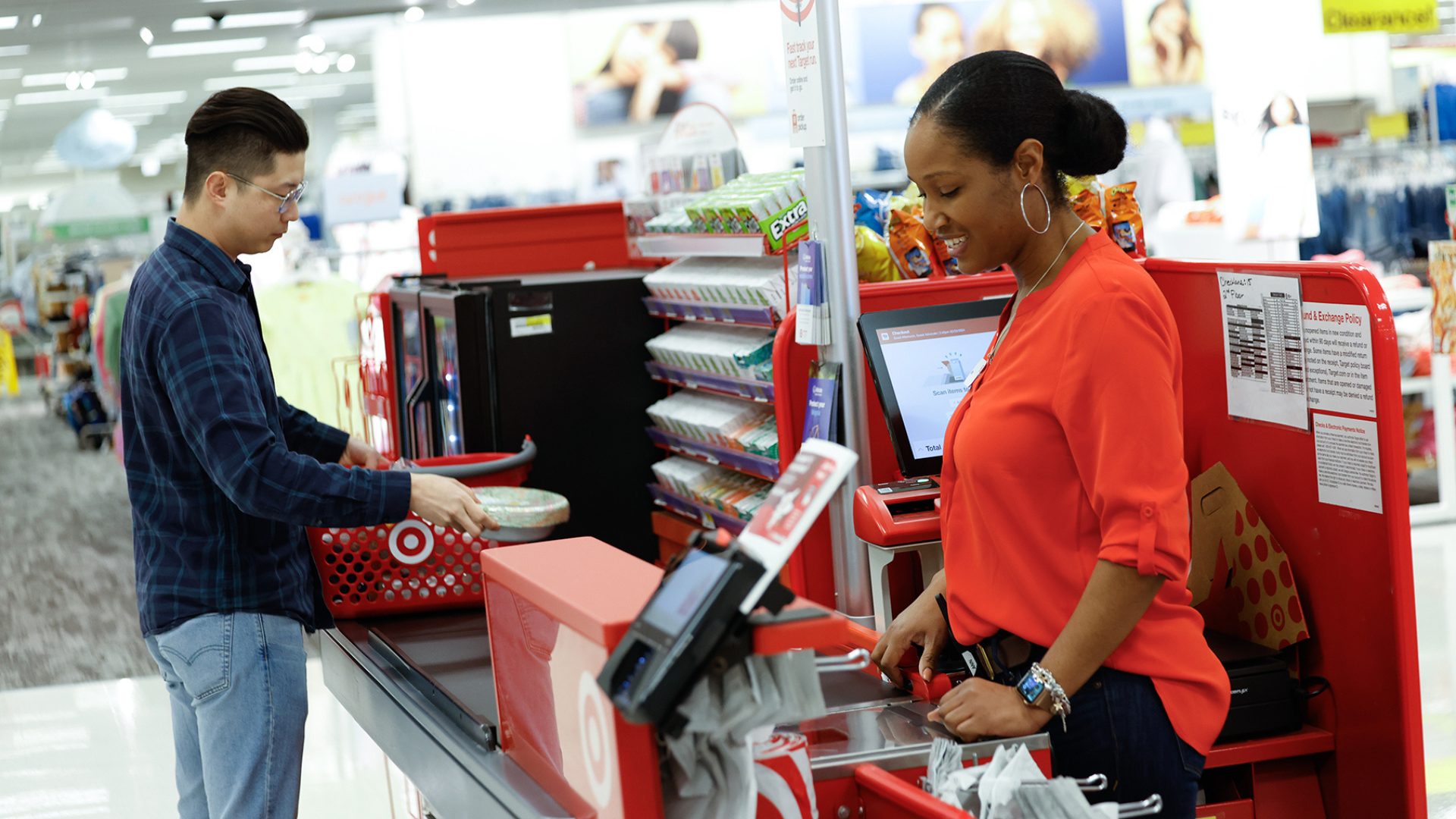Amid troubling quarterly numbers and lagging in the e-commerce and grocery races, Target’s foray into the private-label battleground has been more arduous than expected.
The foray is more like a slog.
Per a recent story from Reuters, the Minneapolis-based megaretailer features more than 45 private labels that generate over $30 billion each year (its most well-known food brands are Good & Gather and Favorite Day).
Data from research firm GlobalData shows that Target lost market share this quarter in virtually every category except beauty, noting that its domestic market share in e-commerce and online store sales has shrunk in categories that generate over 60% of its revenue. While rivals enjoyed first-quarter sales rising from increased market share, Target posted weaker same-store sales for the quarter ending May 4 – its fourth consecutive drop.
Walmart’s stock is up 27%. Costco’s stock is up 28%. They both outpace even Amazon, which enjoyed a 21% bump. But the Midwest crimson-logoed retailer experienced just a 1.6% increase.
Nonetheless, Target announced a summer rollback of prices of over 5,000 frequently bought groceries while adding 125 food items to its front-facing private-label brands (Good & Gather and Favorite Day).
“With groceries, Target has an uphill battle ahead,” said Greg Zakowicz, senior e-commerce expert at OmniSend, to TFI.
“Not only have other stores had a head start on establishing their private labels, but Target has generally done a poor job at marketing theirs. Compounding this, Target is less often a one-stop–shop for household groceries. Because of this, private-label grocery purchases are more one-offs than staples of shopping habits.”
Per OmniSend data, Chinese marketplaces like Temu and Shein have enjoyed robust apparel purchases as low-cost alternatives also bite into revenue. Known for its generally affordable and high-quality basic staples, Target can no longer rely on habitual loyalty alone to fuel growth – it’s not a primary destination for groceries (like club stores), nor a hot spot for summer furniture (like Lowe’s or Home Depot), nor a dedicated space for consumer electronics, books, and gifts.
“Target’s struggle with private labels reflects broader challenges in maintaining market share,” said Amy Kauffman, CMO at CMO Room, to TFI. “Rather than relying heavily on expensive national partnerships like Starbucks, Target needs to double down on investing in product research, development, and innovation for private labels,” she said.
Kauffman advised that Target should invest more in consumer insights, premium ingredients, and promoting its owned brands through more direct and, well, targeted campaigns. Kauffman also mentioned that as the economy shifts, Target needs to lean into enhancing private-label innovation rather than relying heavily on national brands.
“By tapping into product niches where they have a quality and cost edge – like indulgent yet better-for-you beverages – Target can create compelling private label narratives that foster loyalty and reclaim market share across categories.”
The Price & The Pendulum
Everything is cyclical. There’s a pendulum at play for any brand investing heavily in the private-label game – as more house brands populate shelves with similar names and cheaper prices than their national brand counterparts, public perception of the parent company may swing along with the pendulum; in other words, some consumers may begin to question what they’re compromising when their carts are full of private-label goods instead of the national brands they may have been buying last week, last quarter, or last year. So swings the pendulum as a blade of commerce.
“Private labels are extensions of the main brand where quality is taken into account in a much more immediate manner,” said Reilly Newman, brand strategist and founder of Motif Brands, to TFI.
“Target may be having a slight reality-check from the audience whose expectations for quality or enjoyment is misled by the strong design language and presentation that Target is known for. The gap between the expectation and actual experience may be drifting too far, which results in trust being subtracted along with sales.”
It may not be intentional – it may only exist in the subconscious of the consumer – but if more affordable and analogous goods aren’t cutting it for a wide swath of the market, it may be time to stop questioning the market and start questioning the company strategy in every section, aisle, and endcap.
“Private-label success requires commitment beyond simply mimicking national brands with a slightly less attractive price tag — it requires innovation and value creation,” said Katie Devoe, CEO at CBD Nationwide, to TFI.
If there’s one thing Target has shown it can do, however, is innovate and create value. It should be an interesting summer.
The Food Institute Podcast’s “Foodservice Gamechangers” Series
Get to know the men and women behind the scenes of foodservice distribution in a new, limited series from The Food Institute Podcast called “Foodservice Gamechangers.” Recently, Pat Mulhern, advisor to The Food Institute, sat down for brief conversations with seven of the most influential foodservice merchandising and distribution leaders. Highlighting their food career journeys and management styles, the conversations feature insightful thoughts on what may lie ahead for manufacturers, distributors, and operators in foodservice.










